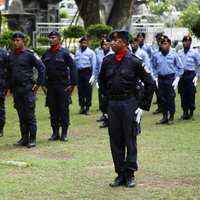The U.S.-led economic reconstruction projects in both Afghanistan and Haiti, as well as similar United Nations efforts in Africa, the Balkans and Timor Leste, highlight the dismal track record of post-Cold War efforts to help countries transition from war or other forms of chaos to peace. Despite a few success stories, roughly half of the countries facing such transitions, according to the U.N., relapsed into conflict or chaos, leading to further human tragedy, large number of refugees and internally displaced populations (IDPs), and huge costs in new military interventions and peacekeeping operations. Furthermore, failed states have become incubators for terrorism, trafficking of drugs and women, piracy and other illicit activities. As a result, failure at the country level has often had serious regional and global repercussions. Among those countries that did manage to keep a fragile peace, the large majority have ended up aid-dependent, hardly a sustainable situation either.
Most of the countries that engaged in post-conflict reconstruction during the past two decades were emerging from civil war and other internal conflicts, although the crises often involved several countries in the region. Some of the countries facing reconstruction had emerged from the foregoing conflict as new states, as was the case with Bosnia-Herzegovina, Kosovo and Timor Leste.
Countries emerging from civil war or armed independence movements confront the double challenge of creating dynamic economies and promoting inclusion, without which national reconciliation and the consolidation of peace will prove elusive. These countries face acute problems, however, and their policymaking options are restricted. While unproductive investment in these countries in the form of military and security expenditure is high, productive investment has been inadequate. After crises end, countries often have no income, no production and no savings. They therefore cannot invest, making them largely reliant on foreign aid, even for current expenditure.

